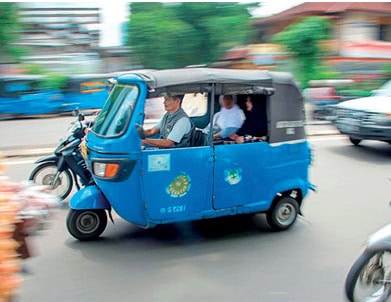JAKARTA: Auto-rickshaw driver Zainuddin used to make decent money navigating Jakarta’s congested roads and narrow alleyways.
But now US-based Uber, Google-backed Go-Jek and Singapore’s Grab are locked in a race for ride-hailing app supremacy in Southeast Asia’s biggest economy, denting the fortunes of traditional three-wheeled Bajaj taxis that once ruled Indonesia’s roads.
“Our income has fallen between 70 and 80 per cent since ride-hailing apps came on the scene,” said Zainuddin, who like many Indonesians goes by one name.
There were some 14,000 Bajaj on Indonesia’s roads by 2015, according to the latest official figures.
By contrast, Go-Jek alone claims 900,000 drivers and some 15 million weekly active users. It launched in 201
Google and Singapore’s sovereign wealth fund Temasek have announced investments in Go-Jek, which has been valued at as much as $5 billion.
Southeast Asia’s ridehailing market more than doubled in two years to some $5 billion in 2017 and it’s expected to reach $20 billion by 2025.
AFP

